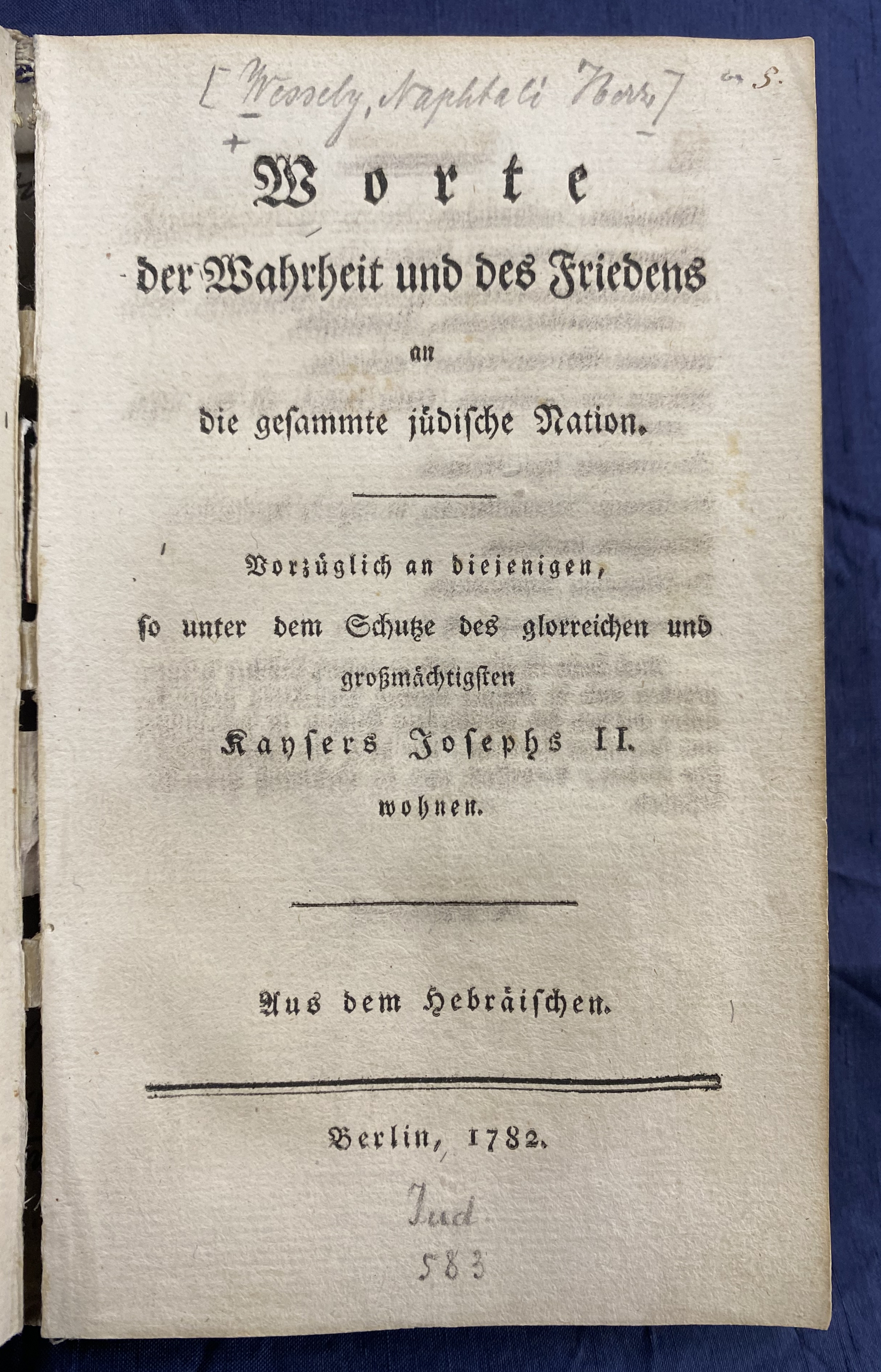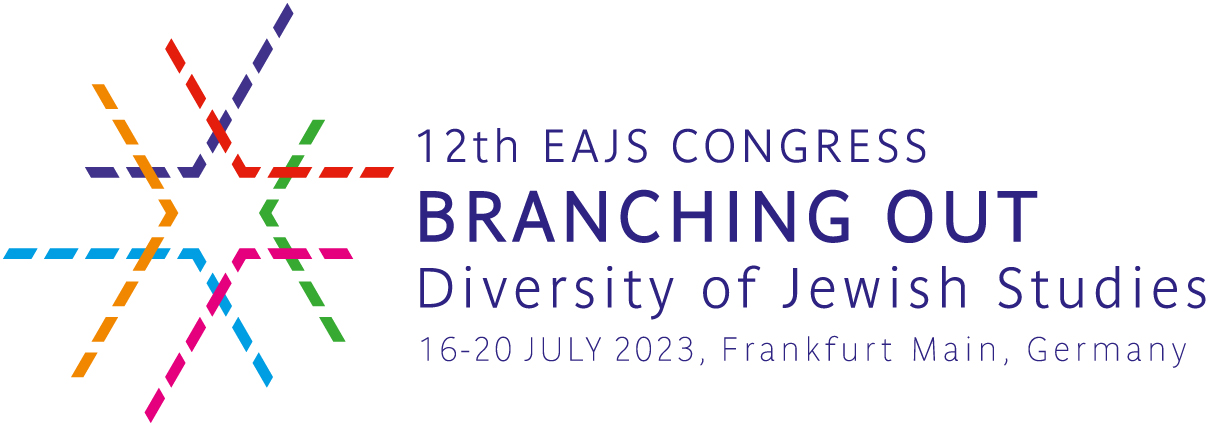- GU Home
- 12th EAJS Congress
- Jewish Books & Jewish collections: Treasures of the University Library Frankfurt
- Haskalah – The Cultural Revolution of the Jewish Enlightenment
- Worte der Wahrheit und des Friedens – Words of Truth and Peace
Worte der Wahrheit und des Friedens – Words of Truth and Peace

Naphtali Herz Wessely, Worte der Wahrheit und des Friedens an die gesammte jüdische Nation, Berlin 1782. German. Translated by David Friedländer | Call Number: Jud. 583 Bd. 1, Nr. 5 | Digital copy via Frankfurt's Digital Judaica Collections.
Naphtali Herz Wessely (1725–1805) wrote Divrei Shalom we-Emet in response to Emperor Joseph II's Toleranzedict from 1781 and laid out ideology of the Haskalah for the first time. Based on his pedagogical thinking Wessely emphasized the required changes in the Jewish educational system. He called on the Jews to adopt the new regulations of the Toleranzedict and asserted the necessity of strengthening the study of worldly knowledge – most significantly the social sciences and the natural sciences. Thus emphasizing the dependencies of Torah and the Mitzvot and the sciences. Divrei Shalom we-Emet was translated into French (1792), Italian (1793), and German (1798), the latter by David Friedländer (1798). Wessely promoted the need for reform within Judaism and supported Moses Mendelssohn, and in so doing displeased and angered the rabbinical authorities of Germany and Poland, who threatened him with ex-communication.
- Aktuelles und Presse
- Pressemitteilungen
- Öffentliche Veranstaltungen
- Uni-Publikationen
- Aktuelles Jahrbuch
- UniReport
- Forschung Frankfurt
- Aktuelle Stellenangebote
- Frankfurter Kinder-Uni
- Internationales
- Outgoings
- Erasmus / LLP
- Goethe Welcome Centre (GWC)
- Refugees / Geflüchtete
- Erasmus +
- Sprachenzentrum oder Fremdsprachen
- Goethe Research Academy for Early Career Researchers
- Forschung
- Research Support
- Forschungsprojekte, Kooperationen, Infrastruktur
- Profilbereich Molecular & Translational Medicine
- Profilbereich Structure & Dynamics of Life
- Profilbereich Space, Time & Matter
- Profilbereich Sustainability & Biodiversity
- Profilbereich Orders & Transformations
- Profilbereich Universality & Diversity






